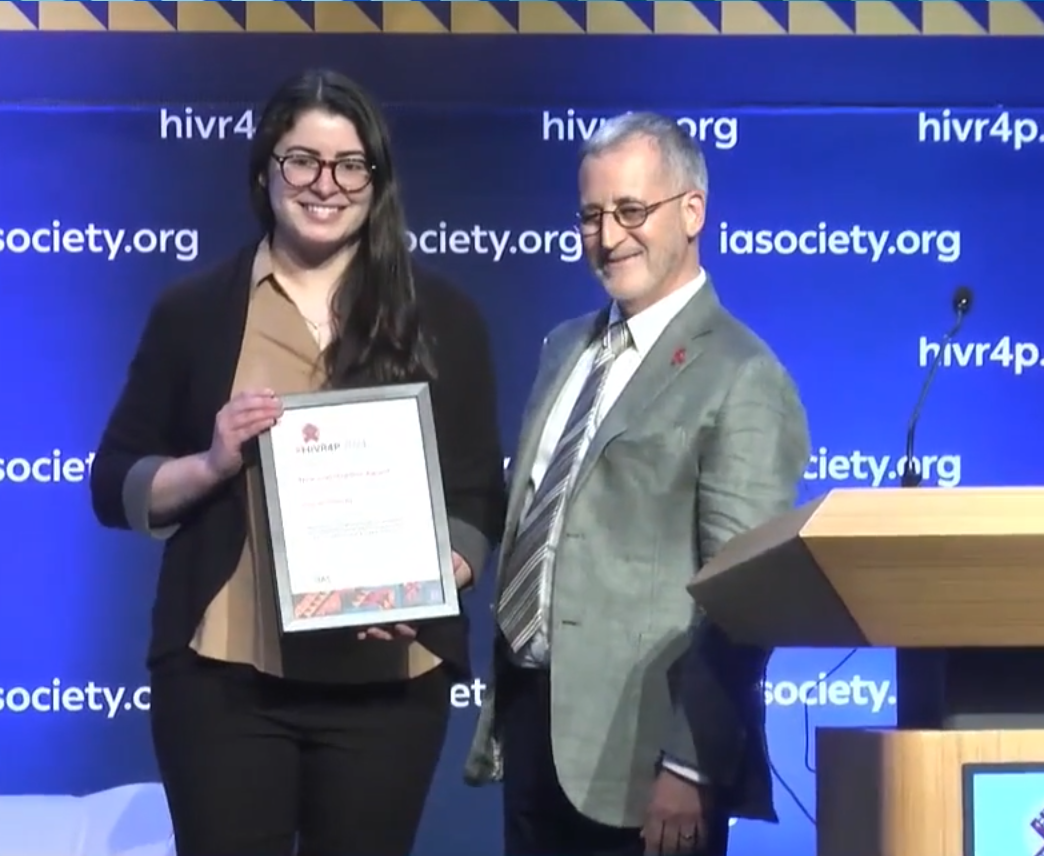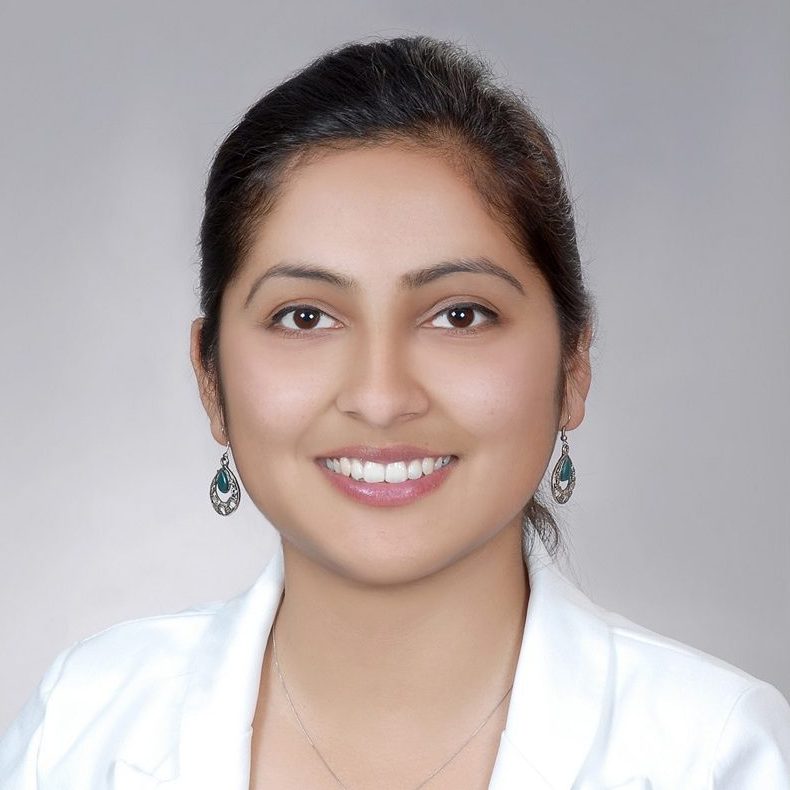Research
November 27, 2024
Researchers awarded new grant to test implementation strategies to scale-up transitional care among youth living with HIV in Kenya
Categories: Awards, HIV and Co-Infections, Research

As more children and adolescents living with HIV survive into adulthood, maintaining successful and uninterrupted transitions into adult HIV care clinics has become a priority in the HIV/AIDS research community. Adolescents having “grown up” under pediatric HIV care may experience deep loss of their support system and feel less prepared to assume responsibility for themselves in adult care. The transition is a vulnerable point when adolescents are at risk of disengagement from HIV care altogether. It is critical that they maintain uninterrupted HIV care to stay healthy, maintain low viral load, and reduce further transmission.
Since 2016, Global WACh investigators Drs. Irene Njuguna, Kristin Beima-Sofie, Grace John-Stewart, and Dalton Wamalwa have led efforts to engage the Ministry of Health and local communities in Kenya in the development of the Adolescent Transition Package (ATP), a healthcare worker toolkit that includes structured educational materials and tracking tools to facilitate the transition process. (more…)
November 26, 2024
Dr. Arianna Means awarded grant to develop a researcher-friendly tool to improve translating evidence into practice
Categories: Awards, Implementation Science, Research

It is estimated that it takes an average of 17 years for 14% of clinical research to translate into practice. Many evidence-based interventions (EBIs), including biomedical interventions or practices that have demonstrated ability to improve health behaviors, health outcomes, or health-related environments, fail to translate into policy and practice.
There are several cultural, organizational, political and operational barriers that prevent effective uptake of EBIs. There may be serious constraints in policymakers’ preferences and priorities, the ability to supply the workforce training needed, and communication gaps between researchers and policymakers, among many other factors.
Dr. Arianna Means, Assistant Professor in UW Global Health, who is a trained epidemiologist and implementation scientist, is launching a new project in early 2025 to help close the gap between what scientists know can optimize health and what they do in practice (often referred to as “the know-do gap”) by identifying and addressing the barriers that slow or halt the uptake of EBIs. (more…)
November 20, 2024
Global WACh Certificate Student Emmalie Griswold supports new study to help describe decision-making processes of people living in US states with poor abortion access
Categories: Certificate Program, Family Planning, Research, students

Since the US Supreme Court Dobbs decision in June 2022 to take away the constitutional right to abortion, more than 20 US states ban or severely restrict abortion care. Consequently, about 1 in 5 seeking abortion travel across state lines, impeding access to timely and affordable care. Understanding the decision-making, journeys and care received by out-of-state patients seeking in-person care in legal states is urgently needed to improve equitable access to abortion.
The UW Access, Delivered research team, based in the Department of Family Medicine Women’s Health Research and Scholarship Lab, recently launched a new study aimed at understanding the decision-making processes of individuals living in states with severe abortion restrictions, who either choose to order medication abortion pills through an online provider or pursue in-person care in another state. The team is partnering with three clinics providing first-trimester abortion care (two in-person and one virtual), and engaging a diverse six-person Community Advisory Board. The evidence generated can inform patient-facing decision-making tools for people living in areas with poor abortion access.
During Summer 2024, Emmalie Griswold, a 2nd year MPH in Health Systems and Population Health (HSPOP) and Global WACh Graduate Certificate student, provided critical research coordination support to set up the research infrastructure of the new study, essentially laying the groundwork for smooth study execution. (more…)
November 19, 2024
Global WACh Certificate Student Amaya Gatling supports neonatal health researchers identify pathways to implement a smartphone-based birth asphyxia screening tool for newborns
Categories: Certificate Program, mHealth, Research, students
 Birth asphyxia affects nearly 30 per 1,000 live births in low-income countries worldwide. Birth asphyxia accounts for almost a quarter of neonatal deaths and remains a significant contributor to long-term disability worldwide. Early identification of infants at highest risk is necessary to improve short- and long-term outcomes. Standardized measurements to objectively assess a newborn’s risk are often unavailable in low resource settings due to lack of human resources and high cost.
Birth asphyxia affects nearly 30 per 1,000 live births in low-income countries worldwide. Birth asphyxia accounts for almost a quarter of neonatal deaths and remains a significant contributor to long-term disability worldwide. Early identification of infants at highest risk is necessary to improve short- and long-term outcomes. Standardized measurements to objectively assess a newborn’s risk are often unavailable in low resource settings due to lack of human resources and high cost.
With support from the UW Population Health Social Entrepreneur Fellowship Program, a project team in UW Pediatrics Division of Neonatology is working to solve this issue by developing a portable, affordable device for blood pH measurement and screening in low-income countries. The device, named pHastCam, will utilize a pH sensitive dye and ubiquitous smartphone camera technology to determine blood pH within seconds.
In Summer 2024, the program assigned Amaya Gatling, 2nd year MPH in Global Health and Global WACh Graduate Certificate student, to support the pHastCam team, led by Drs. Krystle Perez and Gregory Valentine, by conducting a deep dive into customer discovery, market strategy and explore how to build a pathway to sustainability in low-income countries. (more…)
October 7, 2024
Laurén Gómez awarded IAS New Investigator Award for research identifying motivators of initiating PrEP in pregnancy
Categories: Awards, HIV and Co-Infections, PrEP, Research

Congratulations to Laurén Gómez, Senior Research Coordinator with Global WACh and current PhD student in UW Epidemiology, for receiving the International AIDS Society’s (IAS) New Investigator Award in PrEP and ARV-based prevention research for the abstract, “Motivations of pregnant women initiating PrEP within antenatal care enrolled in a randomized trial to improve adherence: the mWACh-PrEP study.”
The award recognized six early-career investigators who presented top-rated work at HIVR4P, the 5th HIV Research for Prevention Conference, held from October 6-10, 2024 in Lima, Peru and virtually. (more…)
Dr. John Kinuthia and Julia Dettinger receive IAS award for high-impact paper on PrEP delivery during pregnancy
Categories: Awards, HIV and Co-Infections, Publication, Research
 Congratulations to Dr. John Kinuthia (Affiliate Associate Professor, UW Global Health; Head of Research and Programs, Kenyatta National Hospital) and Julia Dettinger (former Research Scientist with Global WACh) for receiving the Journal of the International AIDS Society’s (JIAS) HIV Prevention Impact Award for the co-authored article, “Risk-based versus universal PrEP delivery during pregnancy: a cluster randomized trial in Western Kenya from 2018 to 2019.”
Congratulations to Dr. John Kinuthia (Affiliate Associate Professor, UW Global Health; Head of Research and Programs, Kenyatta National Hospital) and Julia Dettinger (former Research Scientist with Global WACh) for receiving the Journal of the International AIDS Society’s (JIAS) HIV Prevention Impact Award for the co-authored article, “Risk-based versus universal PrEP delivery during pregnancy: a cluster randomized trial in Western Kenya from 2018 to 2019.”
The award was announced at HIVR4P, the 5th HIV Research for Prevention Conference, held from October 6-10, 2024 in Lima, Peru and virtually. (more…)
August 29, 2024
New study aims to evaluate a novel pediatric TB diagnostic tool and treatment response
Categories: Awards, HIV and Co-Infections, Research

Investigators Dr. Sylva LaCourse (UW), Dr. Tony Hu (Tulane University), and Dr. Vidalis Nduba (KEMRI CRDR)
A new five-year study titled “CRISPR-TB for pediatric TB diagnosis and treatment response” funded by the National Institutes of Health will support an evaluation of a CRISPR-based technology to target and detect Mycobacterium tuberculosis cell-free DNA (cfDNA). The study’s findings may provide a deeper understanding of its potential to diagnosis pediatric TB early and accurately and improve treatment responses. (more…)
August 27, 2024
New award will support building pre-award research administration capacity at Kenyatta National Hospital in Kenya

Credit: Karolina Kaboompics/Pexels
Congratulations to the research administrative team at Kenyatta National Hospital (KNH) and UW/Global WACh for receiving a National Institute of Allergy and Infectious Diseases (NIAID) G11 award to build pre-award grants management processes at KNH by leveraging an over 30 years long collaborative research partnership between KNH and UW. (more…)
August 26, 2024
Register for the DeWorm3 Study’s Primary Results Webinar on September 25, 2024
Categories: Gut Health and Child Survival, Research
Please join the DeWorm3 Study for a special scientific webinar to hear primary results on September 25th, 2024 from 1-3 PM UTC.
DeWorm3 has contributed a significant body of research on the feasibility of interrupting soil-transmitted helminth (STH) transmission through community-wide mass drug administration (cMDA) in Benin, Malawi and India. Visit their website to learn more about the objectives, team members, and publications.
Registration is required to receive the webinar link. Click the flyer or scan the QR code below to register today! (more…)
August 23, 2024
Dr. Ruchi Tiwari receives NIH Postdoctoral Fellowship to study the association of maternal factors and child neurodevelopment in Kenya
Categories: Awards, Gut Health and Child Survival, Research
 Congratulations to Dr. Ruchi Tiwari for receiving an NIH F32 Postdoctoral Fellowship Award that aims to enhance the research training of promising postdoctoral candidates who have the potential to become productive, independent investigators. This funding will allow her to continue training at Global WACh under the mentorship of Dr. Christine McGrath (Associate Professor, Global Health and Adjunct Associate Professor, Epidemiology) and faculty within the Gut Health and Child Survival scientific priority area.
Congratulations to Dr. Ruchi Tiwari for receiving an NIH F32 Postdoctoral Fellowship Award that aims to enhance the research training of promising postdoctoral candidates who have the potential to become productive, independent investigators. This funding will allow her to continue training at Global WACh under the mentorship of Dr. Christine McGrath (Associate Professor, Global Health and Adjunct Associate Professor, Epidemiology) and faculty within the Gut Health and Child Survival scientific priority area.
Dr. Tiwari plays a leading role in pediatric studies on gut health and malnutrition in Kenya alongside investigators at the Kenya Medical Research Institute (KEMRI). These studies involve understanding the effects of breast-milk derived nutrition supplements (human milk oligosaccharides or HMOs) on infant health outcomes. She will leverage her skills to assess how maternal factors that can be changed or controlled (e.g. stress, infection, and inadequate nutrition during and after pregnancy) influence child neurodevelopment at 2 years of age, with an important focus on the difference in the composition of HMOs by those factors. (more…)
Previous page Next page